From the Experts
The IMO’s role as a regulator in the future of shipping and international trade
On 15 May,
the International Maritime Organization (IMO) hosted a high-level debate on its role as a regulator in the future of shipping and international trade.
The debate was part of 70th anniversary events to be held throughout 2018 – the initial IMO convention was adopted in 1948.
IMO secretary general Kitack Lim in opening remarks celebrated the most recent country to join the IMO, Republic of Nauru, bringing the total number of member states to 174.
Panel moderator Richard Clayton, chief correspondent at Lloyd’s List, said that developments outside the shipping sector, particularly the renewable energy revolution and digitalisation, could have profound implications for shipping, and posed the question of how IMO regulations can keep pace with technological change.
Here's what some of the industry's experts had to say about the future role of the IMO and the future of shipping in a changing technological and regulatory landscape.
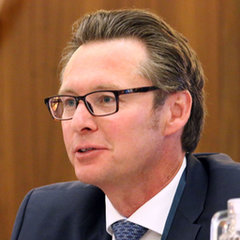
Knut Ørbeck Nilssen, chairman of IACS Council, and DNV GL’s maritime business area CEO, on autonomous vessels:

We need to distinguish between autonomous shipping and unmanned shipping. For the high seas I think we will not see unmanned vessels for a very long time to come. But there are all sorts of specialist maritime applications for increased automation.
We need to distinguish between autonomous shipping and unmanned shipping. For the high seas I think we will not see unmanned vessels for a very long time to come. But there are all sorts of specialist maritime applications for increased automation.
Image courtesy of
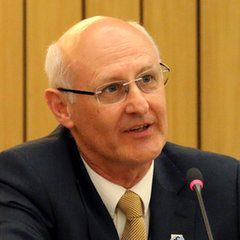
Alan McKinnon, Professor of Logistics at Kuehne Logistics University, and Emeritus Professor of Logistics at Heriot Watt University, on decarbonising the shipping sector:
Electrification – maybe that’s a black swan. Maybe by 2050 we will have found a way to include decarbonized electricity within the maritime sector. That would be transformational.
Image courtesy of
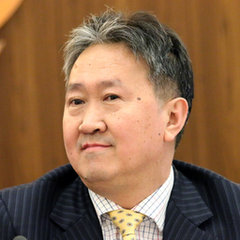
Xiaojie Zhang, chair, IMO Council, on the changing role of the IMO:

Looking in the past, IMO was mostly reactive. Now we want to be the facilitator of the adoption of new technologies.
Image courtesy of
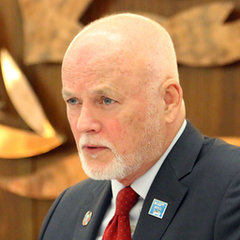
Peter Thomson, UN Secretary General’s Special Envoy for the Ocean, voices his concerns on ocean health:
There’s no doubt we’re moving towards a greener, more sustainable future. Why? Because we have to. The Paris Agreement is essential for humanity’s survival.
There is no central UN agency on the ocean. 40 separate agencies have a finger in the ocean pie. They are collaborating, I’m not worried about that. What worries me is that ocean health continues to decline, in terms of acidification, pollution, and rising sea levels. However I’m confident we can reverse this decline in 10 years.
Image courtesy of
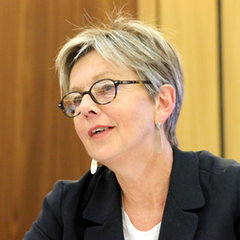
Diane Gilpin, founder of the Smart Green Shipping Alliance, on the importance of green technology in shipping:

Primary renewable energy is the key opportunity for shipping, and the way we implement that is collaboration. The IMO has shown it has the ability to bring disparate people together to reach groundbreaking agreements.
We need to look at the enabling structures around green technology. We need to look at the financing structures used in renewable energy, and bring them over into the shipping industry.
All image courtesy of IMO / Flickr